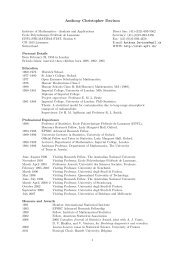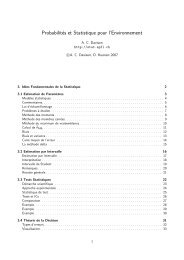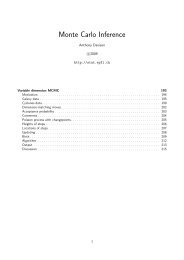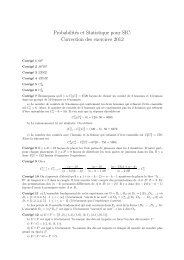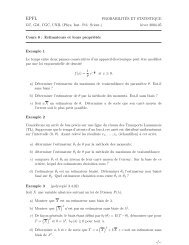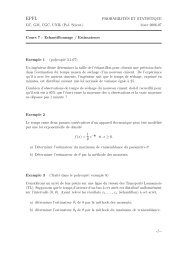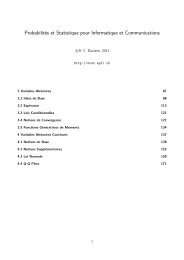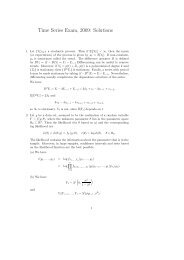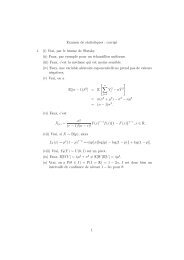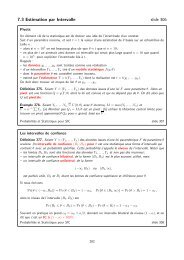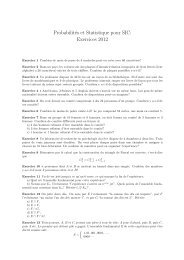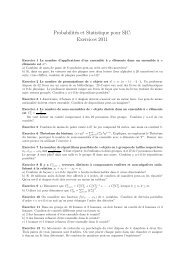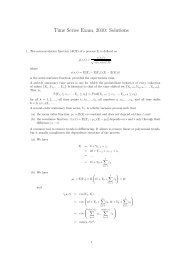Time Series - STAT - EPFL
Time Series - STAT - EPFL
Time Series - STAT - EPFL
Create successful ePaper yourself
Turn your PDF publications into a flip-book with our unique Google optimized e-Paper software.
13. Long-range dependence/Threshold models (27/5/13)<br />
• Long-range dependence<br />
• Continuation; threshold models.<br />
• Work on mini-project<br />
14. Discrete time series/Wrap-up (Reading)<br />
Final mark<br />
• Basic ideas; GLMs; Special models; Markov chain analysis<br />
• Hidden Markov models and Gibbs sampler<br />
• Work on mini-project<br />
The final mark will be determined as follows:<br />
• there will be a data analysis project, to be undertaken in pairs, involving analysis of a<br />
time series data set (to be found by the students concerned, but validated by me), using<br />
R. A report on the data is to be handed in by 7 June 2013. More about this may be<br />
found below;<br />
• a final exam (probably with 5 questions, of which full correct answers to 4 will give full<br />
marks);<br />
• let E be the mark for the final exam (≤ 3) and P be that for the project (≤ 2). Then the<br />
mark M for the course is 1+E+P rounded to the nearest half-mark in {1,1.5,...,5.5,6}.<br />
Data analysis project<br />
Proposal<br />
As soon as possible, I would like to see a brief proposal about your project, consisting of:<br />
• a description of thedata that you plan to analyse, includingsomesuitable plots andmaybe<br />
some other data exploration;<br />
• an indication of the source of the data set;<br />
• the objectives of your investigation;<br />
• a brief overview of the analyses you anticipate completing.<br />
Bear in mind that this will count for 40% of the course mark, and the number of credits for this<br />
course is 4, so this is much less work than a semester project.<br />
The proposal should be made by 8 April 2013 at the very latest, and the earlier the<br />
better—then I can give feedback, and you can start work.<br />
Data<br />
You could look through books in the library, check out links on the course web page, or look<br />
at the many times series data sets available in R. It is best if the data comprise a few hundred<br />
equally-spaced observations, but you should try to find something that interests you.<br />
3



